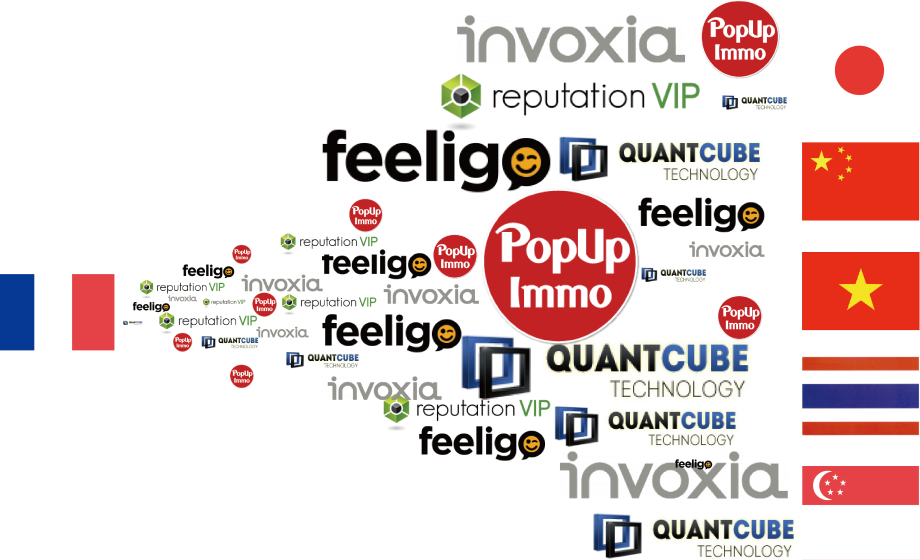When someone from Journal du Net contacted me about my piece last year on 5 French Startups I Can’t Live Without, apparently they liked it so much that they decided to ride with the theme (hey, imitation is the best form of flattery, I suppose). JDN interviewed a handful of France’s first-rate VCs to each select five of France’s startup gems. It’s a good series, and I encourage you to read it (start here and work backwards).
In the spirit of doing something a little more original, this year I propose to compile a top five list of French startups which in my opinion are best positioned to succeed in Asia. As astute readers would know, I’m increasingly enthusiastic about European startups with ambitions to conquer the Rest of World market, notably East Asia. This theme drives much of my investment evaluation these days.
Although I would argue that most of my current portfolio are capable of penetrating developed markets in Asia, to remain neutral I’ve restricted this list to French companies in which I am not an investor. Here are my top five:
1. Feeligo
Although chat stickers and emoji are dismissed in North America, these represent an integral part of online communication culture in many East Asian countries. WeChat and Line are arguably the undisputed leaders in finding ways to monetize stickers in their messaging platforms. Paris-based Feeligo has developed a stickers-as-a-service platform which enables any type of online community, platform, or forum to integrate a stickers package via an API. When the founders of Feeligo joined me at the prestigious DashCamp in Japan this summer, the feedback from Asian VCs was categorical: Move your HQ to Asia asap!
2. ReputationVIP
With their incredibly timely Forget.me product, ReputationVIP enables European consumers to take advantage of a recent court ruling to clean out misrepresentations of their personae in Google search results. In Asian markets where online penetration is still experiencing torrential adoption metrics, yet personal reputations are treasured, solutions like those of ReputationVIP will prove tantamount. Moreover, founder Bertrand Girin speaks Mandarin Chinese and knows what it takes to build a business in China.
3. Invoxia
This sleek connected object serves as telephone console, high-fidelity speakerphone, quality sound system, and conversation-starter. Invoxia creates a VOIP console linked to my Keyyo account (only 30€/mo. for unlimited calling worldwide, including mobiles) that syncs with my entire iPhone contact list and music library. The proof of their potential in Asia: when Yahoo!Japan’s CEO couldn’t take his eyes off the gadget while sitting in my office and wanted to equip his staff.
4. PopUp Immo
Sharing economy startups face diverse challenges in developed Asian markets. In Japan, for example, AirBnb is still witnessing tepid traction, and Uber had to forge a clever partnership with a local taxi company to hit the road there. PopUp Immo, however, offers a concept that appeals to Asian consumer product brands that want to test their wares in Paris without navigating the obscure labyrinth of the local real estate world. It’s a collaborative marketplace for pop-up stores, linking landlords with spare retail space to tenants who seek a temporary retail outlet. The pent-up demand in Singapore for this concept is astounding.
5. QuantCube Technology
Also a VIP invitee to DashCamp in Japan, QuantCube makes a Bloomberg financial terminal seem archaic. The company has developed a slew of incredibly advanced algorithms that turn Big Data into Smart Data. For example, when QuantCube’s algorithms detected positive comments on social media about the new iPhone 5s, yet less enthusiasm about the new iPad, QuantCube could issue a sell/hold recommendation to its hedge fund clients in real-time before Apple’s earnings call. Financial trading houses in Hong Kong, Singapore, and Tokyo are ecstatic about this technology, yet surprisingly, this startup remains relatively undetected by French VCs.


